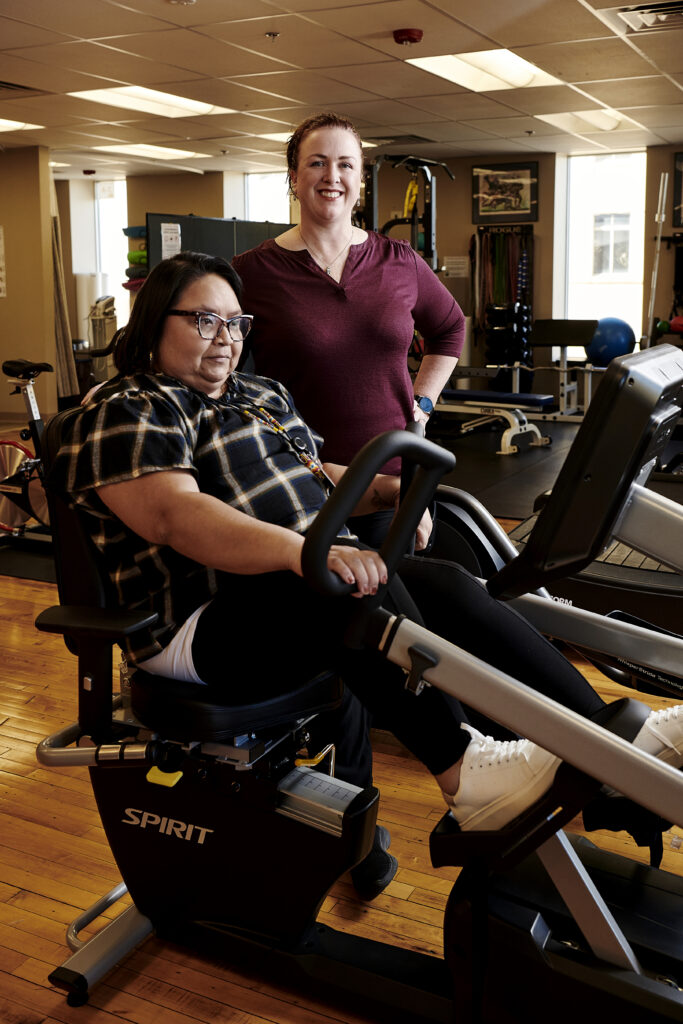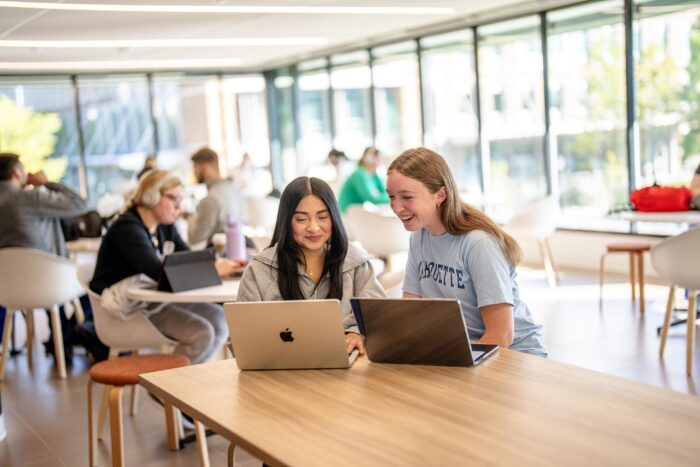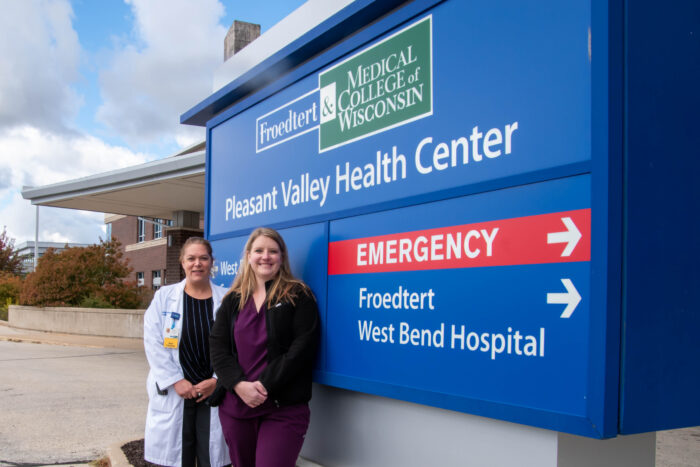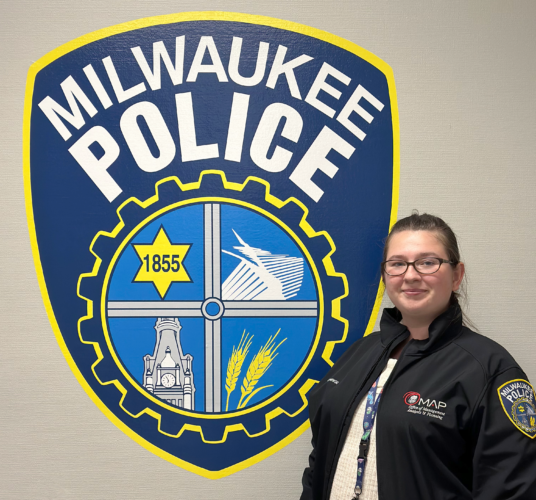
This story is a part of a larger series about College of Health Sciences faculty’s work outside the walls of the university and in the Milwaukee community. Read the full series here.
When Kristine Fleis’ sister hurt her back, she asked Fleis for a list of exercises she could do to feel better. But Fleis, Arts ’96, a physical therapist at Marquette, told her such a list didn’t exist. Treating even something as common as back pain is different for every patient, and the right regimen requires knowing the patient’s history, circumstances, personality and other things.
“People are unique. That’s why there’s not a list,” says Fleis, who is the main physical therapist at the Gerald L. Ignace Indian Health Center.
Fleis puts that philosophy into practice every day at the clinic, which serves Milwaukee’s Indigenous population. The center provides comprehensive medical, dental and behavioral health services, in addition to a pharmacy and physical therapy. Along with those basic needs, the center also provides a cultural home through language programs, powwows and more for the around 7,000 Native Americans living in Milwaukee County, most of whom have been displaced from their families’ native lands.
The heart of the center’s mission is addressing the glaring health disparities affecting Native Americans. Levels of diabetes, heart disease and other health conditions are significantly higher than among Wisconsin residents as a whole. Fleis says her work at the center is part of a holistic approach that includes dietitians, personal trainers and others who focus on increasing awareness about healthy lifestyles and providing resources tailored specifically to elders in the Native American community.
The center recently doubled its physical therapy capacity, bringing on Fleis full time to work with clinic patients. She’s quite busy most days, working with patients on a range of mobility and strengthening routines to improve their quality of life, as well as providing clinical instruction for Marquette physical therapy students. It’s an ongoing learning process, Fleis says.
She is finding out “how to improve my care by learning about different people and how they may need to be motivated differently because they have different backgrounds,” she says.
Ultimately, that knowledge translates into better, more meaningful care for clinic patients, who can see their traditions and perspective reflected in their medical care. As she’s spent more time at the clinic, Fleis says she feels honored to begin to be accepted into the “family” of the clinic’s patients.
Small gestures, like a patient bringing her lunch or making sure she got something from a potluck, show her the work she does is meaningful.
“I always tell my kids, you know, food is love.”


